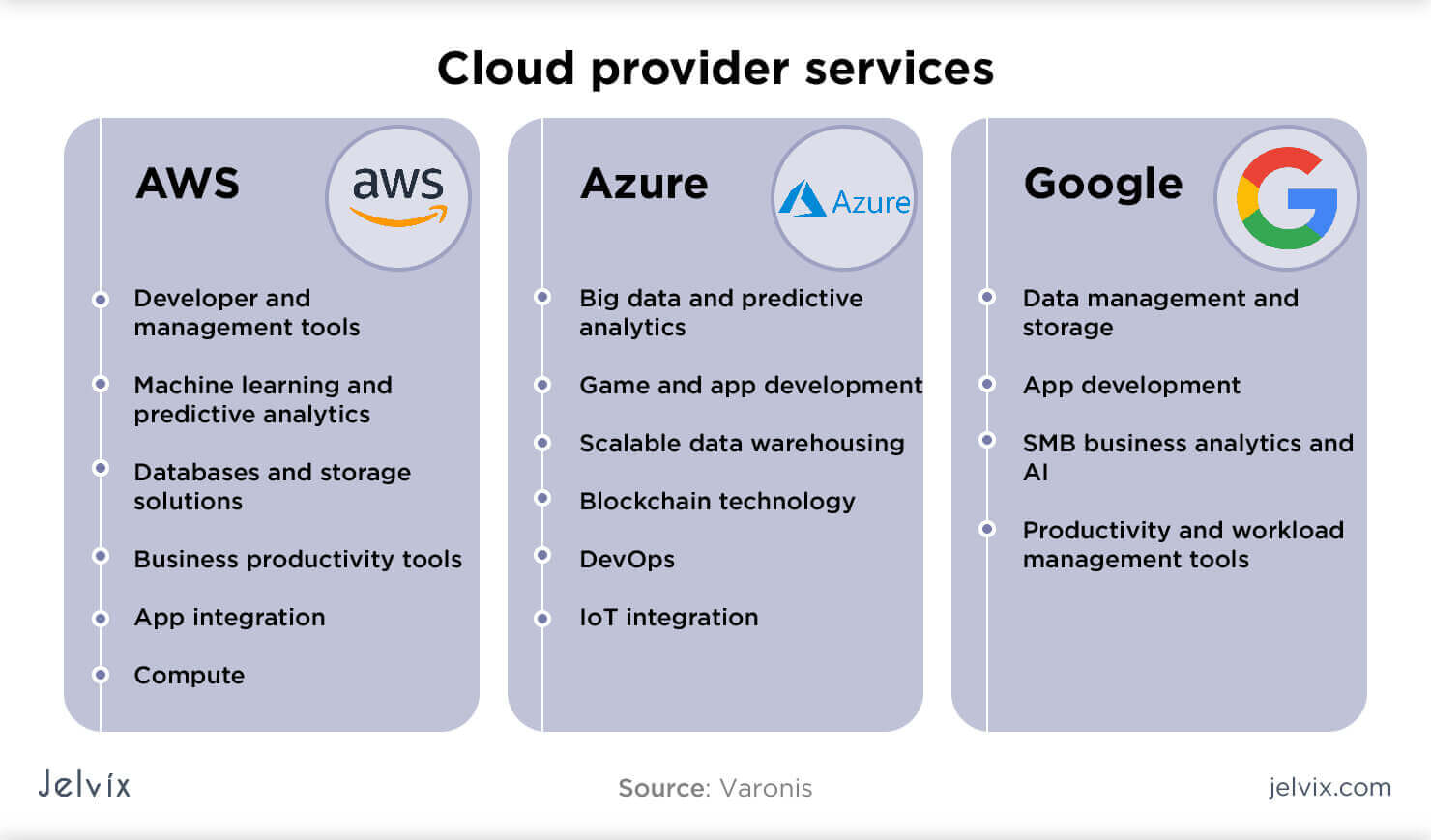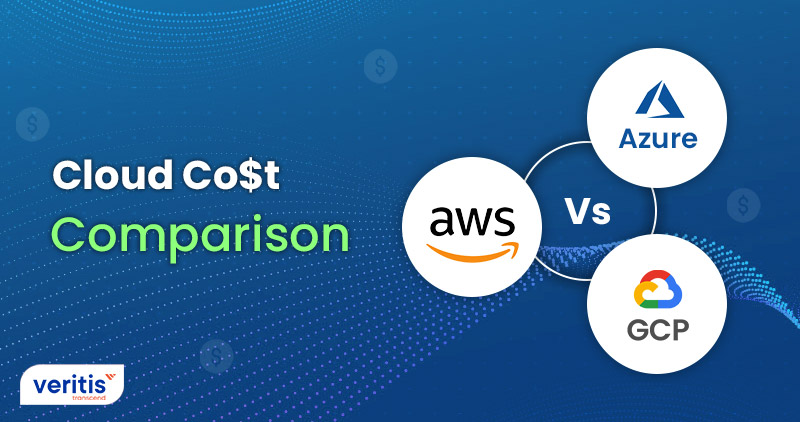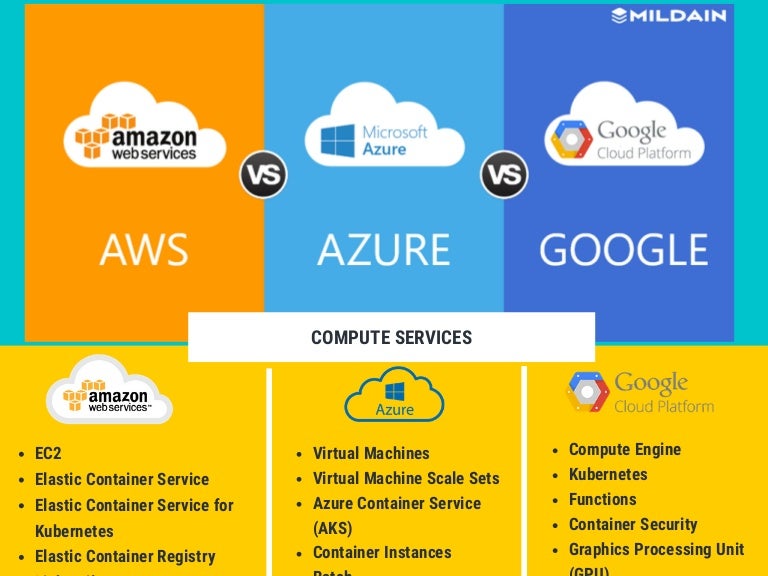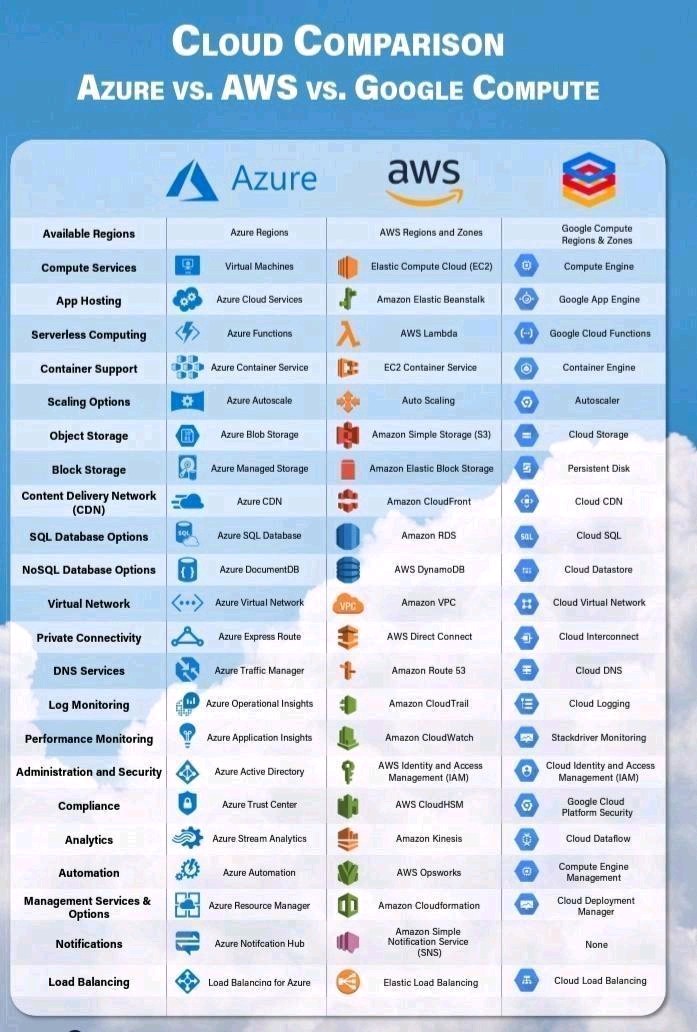Understanding the Cloud Market: An Overview of Major Players
Cloud computing has become an integral part of modern businesses, enabling them to scale, reduce costs, and enhance productivity. Among the various cloud service providers, Azure, AWS, and Google Cloud have emerged as the leading players in this competitive market. These platforms offer a wide range of services, including Infrastructure-as-a-Service (IaaS), Platform-as-a-Service (PaaS), and Software-as-a-Service (SaaS), catering to diverse business needs.
Azure: A Comprehensive Solution for Businesses
Microsoft Azure is a versatile and feature-rich cloud platform that offers a wide range of services, including IaaS, PaaS, and SaaS. Azure’s seamless integration with other Microsoft products, such as Office 365 and Dynamics 365, makes it an appealing choice for businesses already invested in the Microsoft ecosystem. Its compatibility with various programming languages, including Python, Java, and .NET, ensures that developers can leverage their preferred tools and frameworks.
Azure’s popularity among businesses can be attributed to its robust security features, hybrid cloud capabilities, and enterprise-grade scalability. Azure’s extensive marketplace offers a variety of pre-built solutions, enabling businesses to quickly deploy and manage applications, services, and infrastructure. Additionally, Azure’s pay-as-you-go pricing model allows businesses to optimize costs and scale resources according to their needs.
AWS: The Pioneer in Cloud Computing
Amazon Web Services (AWS) is a dominant force in the cloud computing market, holding the position as the first major player in this space. Launched in 2006, AWS has built a reputation for its extensive range of services, catering to various industries and business needs. AWS boasts an impressive clientele, including both developers and enterprises, making it a popular choice for businesses of all sizes.
AWS offers a vast array of services, including computing, storage, databases, and machine learning tools. Its on-demand pricing model and flexibility have made it an attractive option for businesses looking to scale their operations and reduce costs. AWS’s continuous innovation and commitment to providing cutting-edge technology have solidified its position as a market leader.
Google Cloud: Innovation and Scalability
Google Cloud, a relative newcomer to the cloud computing market, has quickly made a name for itself by emphasizing innovation, scalability, and data analytics. Google Cloud’s partnerships with open-source projects, such as Kubernetes and TensorFlow, have broadened its appeal among data-driven businesses and developers.
Google Cloud’s commitment to open-source technology has allowed it to differentiate itself from its competitors, offering a unique value proposition for businesses looking to leverage the power of data analytics and machine learning. Its user-friendly interface and robust APIs have made it an attractive choice for developers and businesses seeking to build, deploy, and manage applications and services in the cloud.
How to Choose the Right Cloud Provider for Your Business
Selecting the ideal cloud provider for your business involves careful consideration of several factors, including budget, required services, integration with existing systems, and long-term growth potential. By evaluating these aspects, you can ensure that your chosen cloud platform supports your business goals and fosters continued success.
Begin by assessing your budget and determining the cloud services you need. Each provider—Azure, AWS, and Google Cloud—offers various pricing models and service tiers, allowing you to select the best fit for your financial constraints. Next, evaluate the compatibility of each platform with your existing systems and infrastructure. Seamless integration can minimize disruptions and streamline operations.
Lastly, consider the long-term growth potential of each cloud provider. As your business evolves, your cloud needs may change. Choosing a platform that can scale with you and adapt to emerging trends in cloud computing is crucial for maintaining a competitive edge.
Real-World Use Cases: Azure, AWS, and Google Cloud in Action
Azure, AWS, and Google Cloud have proven their value in various industries, empowering businesses to achieve their objectives through innovative solutions and services. Here are some real-world examples showcasing the benefits and successes these platforms have brought to their users:
- Azure: A global manufacturing company utilized Azure to develop an IoT solution, enhancing its production efficiency and reducing downtime. By implementing Azure’s machine learning and analytics tools, the company gained valuable insights into its manufacturing processes, leading to improved product quality and cost savings.
- AWS: A prominent e-commerce platform leveraged AWS’s extensive range of services to handle its rapid growth and increasing customer demands. By migrating its infrastructure to AWS, the company achieved scalability, high availability, and robust security features, ensuring a seamless shopping experience for its users.
- Google Cloud: A leading ride-hailing service integrated Google Cloud’s data analytics tools to optimize its operations and enhance its user experience. By analyzing real-time data, the company improved its vehicle allocation and reduced wait times for customers, leading to increased satisfaction and loyalty.
Security and Compliance: Protecting Your Data in the Cloud
Security and compliance are paramount considerations for businesses when selecting a cloud provider. Azure, AWS, and Google Cloud all prioritize data protection and regulatory compliance, offering robust security features to safeguard customer information and assets.
Azure provides a wide range of security tools, including Azure Security Center, Azure Active Directory, and Azure Monitor, ensuring comprehensive threat protection and compliance with various industry standards. AWS, as the pioneer in cloud computing, boasts an extensive array of security services, such as AWS Identity and Access Management, AWS Key Management Service, and AWS Shield, all designed to maintain a secure computing environment.
Google Cloud, with its focus on innovation and data analytics, offers a suite of security features, including Cloud Identity, Cloud Key Management Service, and Cloud Security Scanner. Google Cloud’s commitment to open-source projects further strengthens its security posture, as it collaborates with the security community to address emerging threats and vulnerabilities.
Future Trends in Cloud Computing: Azure, AWS, and Google Cloud’s Roadmaps
The cloud computing landscape is continuously evolving, with Azure, AWS, and Google Cloud at the forefront of innovation. As these platforms expand their offerings, businesses can expect new features and services that cater to emerging trends and industry needs.
One such trend is the increasing adoption of serverless computing, which enables developers to build and run applications without managing servers. Both AWS and Azure provide serverless platforms—AWS Lambda and Azure Functions—while Google Cloud offers Cloud Functions. These services allow businesses to focus on application development, reduce infrastructure costs, and rapidly scale their operations.
Additionally, the growth of edge computing, where data processing occurs closer to the source, is driving advancements in IoT and AI. Azure IoT Edge, AWS IoT Greengrass, and Google Cloud IoT Core empower businesses to process data on-premises or at the edge, reducing latency, and improving overall system performance.
Moreover, the integration of artificial intelligence (AI) and machine learning (ML) capabilities into cloud platforms will continue to be a significant focus. Azure Machine Learning, AWS SageMaker, and Google Cloud AI Platform offer businesses powerful tools to build, train, and deploy ML models, driving data-driven insights and informed decision-making.







